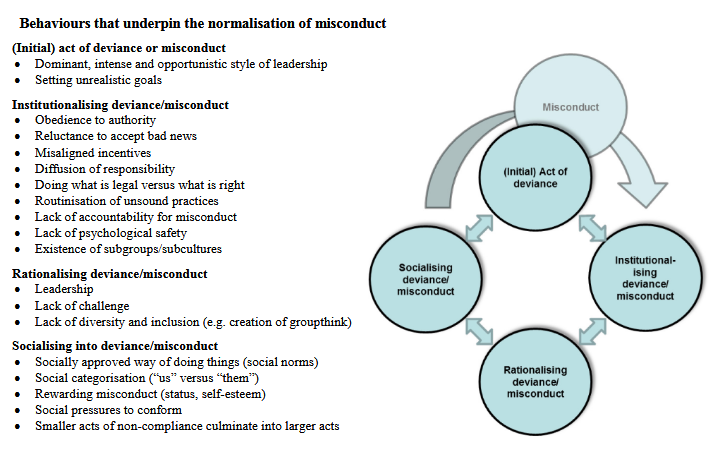
Annex A: The process of normalising misconduct

• (Initial) Act of deviance or misconduct: This could be through a dominant leadership that sets unrealistic goals. Leadership is also important because obedience to authority is a deep-seated psychological response that only a minority of individuals naturally resist [C Moore and F Gino, pp 53-77.].
• Institutionalising deviance/misconduct: Leaders serve as role models that can formally and informally authorise poor conduct. Leaders who fail to see the connection between their actions and outcomes or do not accept accountability for their actions are more likely to institutionalise poor behaviours [J.J. Kish-Gephart, D.A. Harrison, and K.L. Treviño. (2010). Bad apples, bad cases, and bad barrels: meta-analytic evidence about sources of unethical decisions at work. Journal of Applied Psychology, 1, 1-31.].
• Rationalising deviance/misconduct: In order to justify poor conduct, individuals distort their understanding of their own behaviour. This rationalisation process can be facilitated by other processes, e.g. self-verification. Research indicates that people are motivated to seek out other people, opinions, and evidence that validate their existing view of themselves [C Moore and F Gino, pp 53-77.]. Group loyalty within teams in firms, or across firms in specific areas of business/activity can also facilitate rationalisation of poor conduct. Group members may abandon global or universal norms in favour of ‘local’ ones in order to belong, be liked, and avoid exclusion [Ibid.].
